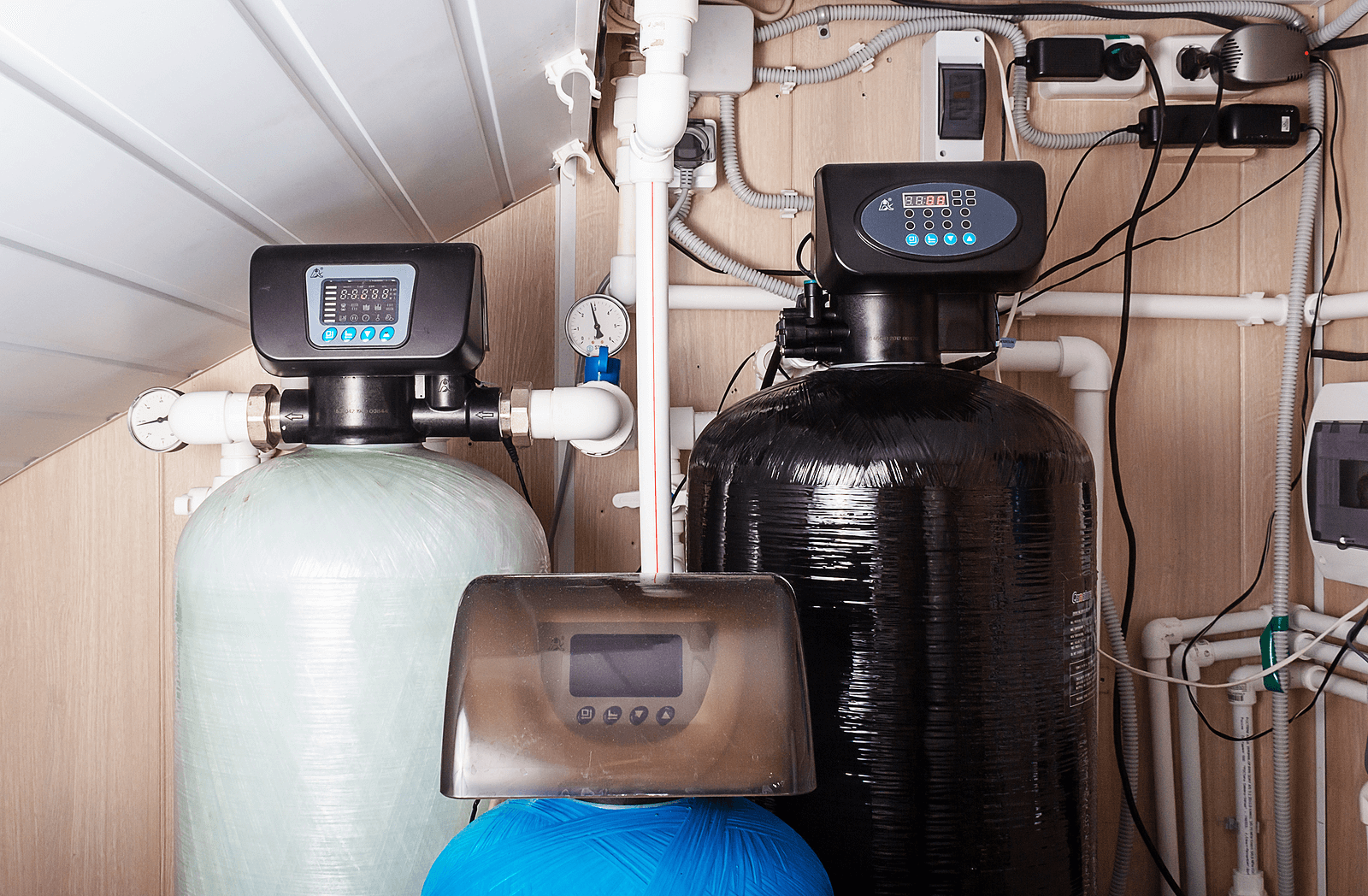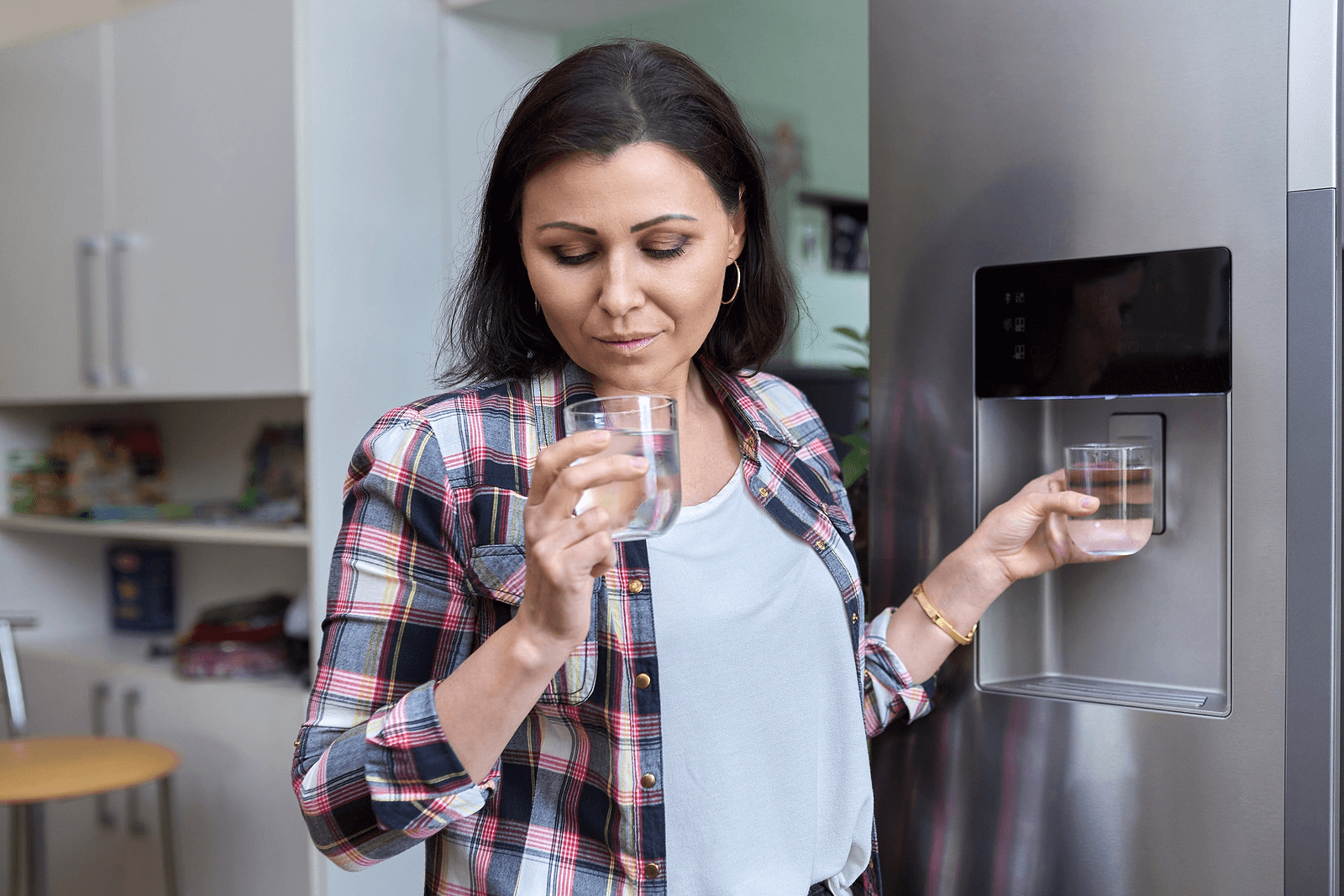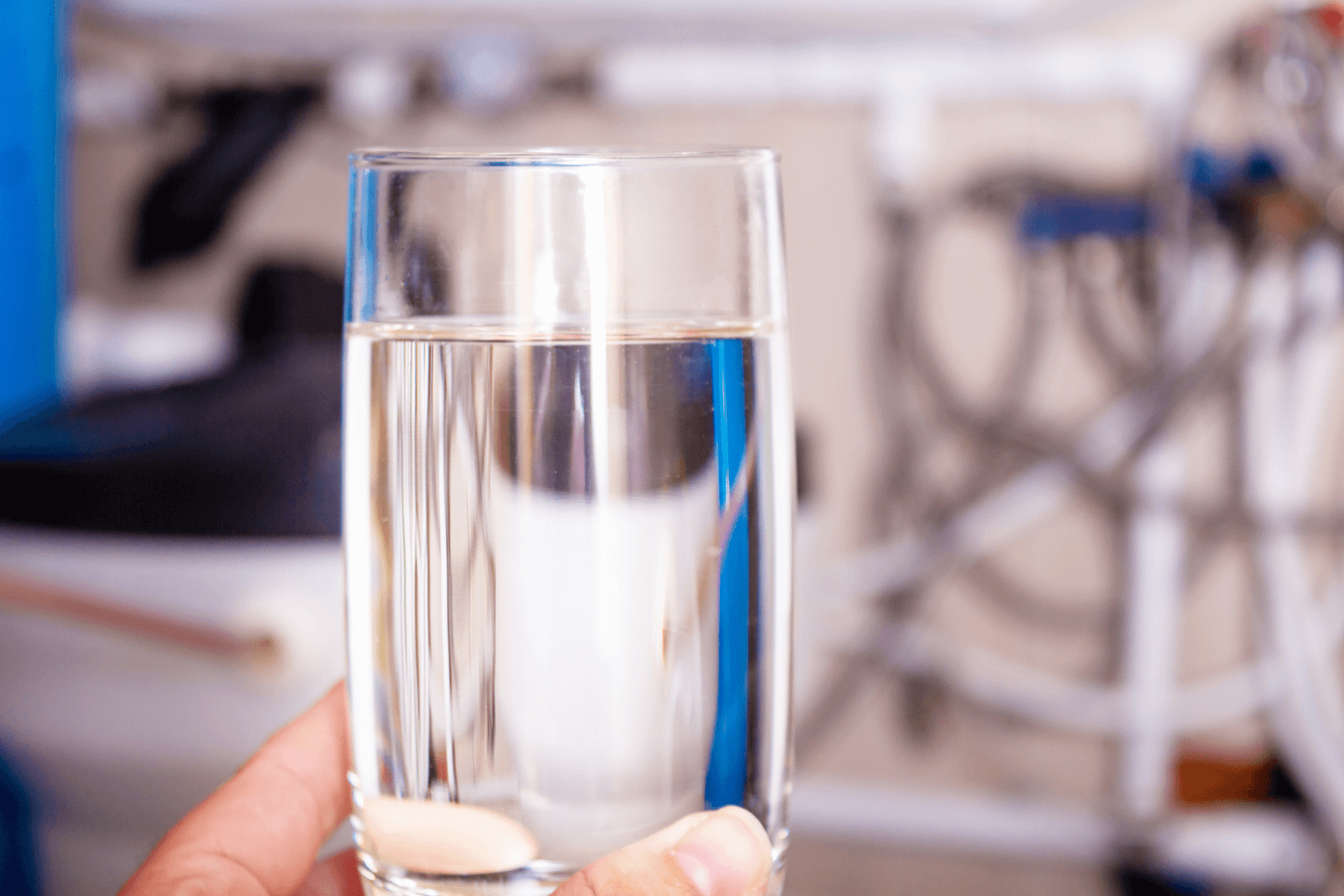Author: Ken Christopher | 18 min read | Oct 28, 2025

Water quality isn’t the same everywhere. Groundwater pumped from an artesian well in the Midwest tastes different from water piped from the Colorado River through the desert, and that variation matters when you’re cooking, bathing, or maintaining your home.
Phoenix’s municipal water travels long distances through rivers and canals before reaching your tap. While it meets safety standards, its high mineral content, disinfectants, and trace compounds often impact taste, odor, and plumbing health.
Understanding Phoenix water quality helps explain these challenges and why so many households look for solutions.
Today, Rayne Water will break down what’s in Phoenix tap water, how it affects your home and health, and the best ways to test and treat it. Because neighboring communities draw on the same regional sources and treatment methods, the guidance below fits the Valley as a whole, including Scottsdale, Glendale, Sun City, Peoria, Mesa, Goodyear, and Anthem.

Across Phoenix, Scottsdale, Glendale, Sun City, Peoria, Mesa, Goodyear, and Anthem, the supply relies on the same regional rivers, which explains the consistently hard profile.
Phoenix’s population relies almost entirely on surface water. According to the city’s 2024 water quality report, 97–99 % of the city’s drinking water comes from surface sources such as the Salt, Verde, and Colorado Rivers.
Snowmelt and rain run down the mountains, pick up minerals from rock and soil, and are eventually stored in reservoirs before being pumped to treatment plants. Only about 2 % of the supply comes from groundwater wells. This heavy dependence on river water is one reason Phoenix’s water is hard and mineral‑rich.
When customers ask us, “What’s in Phoenix water?” We answer with three pieces of context: the primary source, the mineral makeup, and the trace contaminants reported by independent laboratories.
Phoenix water is classified as hard to very hard, with city reports showing 158–344 mg/L of calcium and magnesium. These minerals aren’t harmful, but they leave scale on pipes, faucets, and appliances, making them less efficient.
Phoenix adds about 1 ppm of chlorine to protect against bacteria and viruses. City reports confirm levels meet safety standards, though chlorine can leave a chemical taste or odor, especially after long pipeline travel. To manage this, Phoenix sometimes uses chloramines and flushes lines, causing seasonal taste changes.
Phoenix monitoring also detects trace metals and organics. Arsenic, chlorite, and chromium-6 remain within legal limits but exceed stricter health guidelines. With TDS often above 500 mg/L, water can taste salty or metallic, highlighting why treatment options matter.
Phoenix water quality meets safety standards, but hardness and trace compounds often create issues you notice every day. Many households turn to Phoenix water filtration to protect plumbing, improve taste, and make daily water use more comfortable.
The CDC adds that individuals with weakened immune systems should choose filtration systems that remove parasites like Cryptosporidium and should avoid changing filters themselves.
Testing is the starting point for any water treatment decision. You wouldn’t buy glasses without an eye exam; likewise, you shouldn’t purchase a filtration system without knowing what you need to remove. Here’s how to approach testing, from DIY kits to professional analysis.
You can purchase inexpensive test strips or liquid kits at hardware stores or online.
These kits often measure hardness, chlorine, pH, total dissolved solids (TDS), and sometimes nitrates or iron.
The appeal of DIY kits is convenience; you can order one online and test your water without inviting anyone into your home. Dip a strip into a glass of water and compare the color change to the supplied chart. Within minutes, you have a rough sense of hardness or chlorine levels.
If you live in Glendale or Mesa, older buildings may benefit most from a quick hardness and chlorine check, while fast-growing areas like Goodyear or Anthem may use DIY kits to track seasonal changes.
DIY kits are convenient, but several factors can affect accuracy:
Despite these shortcomings, home kits are useful for routine monitoring. The U.S. Environmental Protection Agency (EPA) recommends testing well water every year for coliform bacteria, nitrates, total dissolved solids, and pH levels.
If you notice taste, odor, or staining problems, test for sulfate, chloride, iron, manganese, and hardness
At‑home kits are an affordable way to watch for changes between professional tests.
When you need reliable data or when a DIY kit raises concerns, professional testing is the best choice. Certified labs follow strict sampling protocols, test for a wide range of contaminants, and provide clear interpretation.
This eliminates errors and delivers accurate results for metals, chlorine, hardness, and more.
Professional testing is especially important if you:
At Rayne Water, we provide complimentary tests and tailored Phoenix water filtration solutions, helping you understand your results and choose the right treatment.

Once you know your water profile, you can choose a treatment strategy. Because Phoenix’s issues revolve around hardness, high TD, and chlorine taste, most households benefit from a combination of softening and filtration.
Below, we review the common options, using both independent research and decades of experience serving Valley residents.
Point‑of‑use (POU) filters treat water at a single tap, typically your kitchen sink.
This category includes faucet‑mounted filters, under‑sink cartridge systems, and pitcher filters.
Activated carbon cartridges are widely used because they improve taste and odor by absorbing chlorine and some organic compounds. POU filters suit apartments and condos in Scottsdale, Mesa, and Glendale where a simple under-sink system solves chlorine taste at the kitchen tap
The CDC notes that many household filters primarily make water taste better; they are not designed to remove germs.
Pros:
Cons:
These systems can serve as an introductory solution for households primarily concerned about taste. For more comprehensive treatment, consider whole‑home systems.
Whole‑home (point‑of‑entry) systems filter water as it enters your house, so every tap delivers treated water.
They often combine a sediment pre‑filter, a large activated carbon tank to reduce chlorine and organic contaminants, and, in some cases, UV or catalytic media for specific issues.
In Phoenix, whole‑home filtration systems dramatically reduce chlorine taste and odor, protect skin and hair from chemical irritation, and help prevent chlorine from degrading rubber seals and gaskets in your plumbing.
Families in Peoria, Goodyear, and Anthem often prefer whole-home carbon plus sediment filtration for better showers and laundry across every tap.
Pros:
Cons:
Whole-home systems, like our whole house series, pair well with water softeners or reverse osmosis units, making them a core part of Phoenix water filtration solutions that tackle both hardness and taste.
For most Valley residents, a water softener is the cornerstone of improved water quality. Softeners use an ion‑exchange resin to replace calcium and magnesium ions with sodium or potassium ions.
The University of Minnesota notes that softening extends the life of appliances, prevents scale, reduces energy use in water heaters, and cuts down on cleaning products. Scale control is a top request in Sun City, Peoria, and Anthem.
A softener protects fixtures, glass, and water-using appliances in those areas.
Benefits:
Considerations:
For drinking water, especially if you are concerned about trace contaminants, reverse osmosis (RO) provides the most complete treatment.
RO systems push water through a semi‑permeable membrane that rejects dissolved salts, metals, fluoride, nitrates, and many organic compounds. Most RO units include carbon pre‑ and post‑filters to handle chlorine and improve taste.
While slower and more wasteful than other technologies,
RO produces very low‑TDS water ideal for cooking, coffee, and baby formula. In Phoenix, we often install RO systems at the kitchen sink to provide bottled‑water quality on demand.
Households dealing with specific contaminants such as arsenic, uranium, PFAS or microbiological risks may require specialty media or UV sterilization. Our water specialists can recommend solutions after testing your water.

With so many options, it’s natural to feel overwhelmed. Here’s how to narrow the field.
Start with test results. If hardness is above 10 grains per gallon, a softener will provide the most immediate benefit. High chlorine or TTHM levels call for activated carbon. Elevated arsenic or nitrates may require RO or specialty media.
Understanding your unique water chemistry prevents over‑ or under‑treating.
Larger households and homes with multiple bathrooms need higher‑capacity systems.
A whole‑home filter sized for a one‑bathroom condo may restrict flow in a three‑bath home. Families who cook frequently or have high coffee and tea consumption may prioritize RO for superior taste.
Our team can assess your daily usage and recommend appropriately sized units.
Initial costs vary widely. Point‑of‑use pitchers start under $50, while whole‑home systems with softening and RO can cost thousands. Factor in ongoing maintenance: carbon and RO membranes require periodic replacement; softeners need salt or potassium pellets; and specialty media eventually expires.
Demand-initiated softeners and high-capacity carbon tanks reduce long-term costs by using salt and media more efficiently.
Simple faucet filters and countertop RO systems can be installed by handy homeowners.
Larger systems require cutting into main water lines, correctly sizing bypass valves, and configuring brine tanks or drainage.
Improper installation can void warranties or cause leaks. Professional installers ensure the system meets local plumbing codes, functions properly, and is optimized for your water chemistry.
They also handle the disposal of old equipment and provide service after the sale.

As a local company serving Phoenix and the surrounding communities for decades, we understand the region’s water challenges. We believe in testing before selling and tailoring solutions rather than offering one‑size‑fits‑all systems.
Our free water consultation includes hardness and TDS testing, evaluation of your concerns, and education about treatment options.
We offer salt‑free conditioners, whole‑home carbon systems, and reverse osmosis units.
After installation, we provide maintenance and filter replacement so you can enjoy worry-free water for years to come. Book a free water check anywhere in the Valley, including Scottsdale, Glendale, Sun City, Peoria, Mesa, Goodyear, and Anthem.
Is Phoenix Tap Water Safe To Drink?
Phoenix water quality consistently meets federal and state safety standards, with millions of tests conducted each year.
These tests keep bacteria and regulated contaminants within legal limits. However, advocacy groups like the Environmental Working Group apply stricter guidelines and note that trace levels of arsenic, chlorite, and chromium sometimes exceed their recommended thresholds.
These are still well below legal maximums, yet some families prefer extra peace of mind.
Phoenix water filtration systems can reduce contaminants while also improving taste. Reviewing the city’s annual water report and considering filtration gives you a clearer picture of your drinking water’s safety.
Why Does My Water Taste Or Smell Strange?
Taste and odor often come from chlorine, which Phoenix adds to prevent bacterial growth.
Minerals like calcium and magnesium contribute a chalky aftertaste, while seasonal changes in reservoirs can create earthy or musty flavors. Even when Phoenix water quality meets all safety standards, these aesthetic issues can discourage hydration.
Many households install point-of-use carbon filters or full-home systems.
Phoenix water filtration solutions remove chlorine, organics, and other compounds that influence flavor. If your water smells like a swimming pool or has a persistent aftertaste, filtration can restore confidence and encourage you and your family to drink more tap water.
How Do I Know If I Need A Softener Or A Filter?
Your water test results and everyday experience reveal what type of treatment is best. White scale on faucets, soap scum on sinks, or shortened appliance life all point to hardness.
A softener will protect plumbing and improve cleaning efficiency. If the main problem is chlorine taste, a carbon filter is effective.
Many homes in the Valley use both, combining softening for the whole house with reverse osmosis for drinking water.
Phoenix water quality varies by neighborhood, so a tailored approach works best. Our water filtration experts can help you choose systems that address your specific household concerns.
How Often Should I Test My Water?
The City of Phoenix issues a Consumer Confidence Report each year, outlining treatment methods and water quality.
For most municipal customers, reviewing this annual report is a good start.
If your home has older plumbing or you notice changes in taste, odor, or color, testing more frequently is wise. Private well owners should test yearly for bacteria, nitrates, hardness, and pH, and every few years for minerals like iron and manganese.
Regular testing ensures water quality continues to meet expectations. Scheduling professional testing with a Phoenix water filtration provider gives a complete picture of your water’s condition.
Can Filtration Systems Remove All Contaminants?
No single filtration system eliminates every contaminant.
Carbon filters reduce chlorine and improve taste, while reverse osmosis removes a wide range of dissolved solids, including arsenic, nitrates, and salts.
UV systems disinfect against microbes but do not treat chemicals, and water softeners only target hardness minerals. Because Phoenix water quality involves both hardness and trace compounds, many households use layered systems.
Phoenix water filtration often combines carbon filters for taste, softeners for scale, and reverse osmosis for drinking water. Choosing NSF-certified equipment ensures you address the contaminants that matter most, based on your household’s test results and priorities.
Which system fits condos in Scottsdale or Mesa versus larger homes in Peoria or Goodyear?
Space and flow need to guide the decision. Condos in Scottsdale or Mesa often start with an under-sink carbon filter or reverse osmosis at the kitchen tap to improve taste and reduce dissolved solids.
Larger homes in Peoria or Goodyear typically benefit most from a whole-home carbon system paired with a softener to handle hardness across showers, laundry, and dishwashers.
Sun City and Anthem homeowners often prioritize scale control to protect fixtures and water heaters. We size each setup to bathroom count and peak flow so pressure stays consistent during busy hours.
If you are unsure, schedule a free assessment, and we will map options to your usage.
Phoenix tap water is a triumph of engineering, turning desert rivers into a safe and reliable supply for nearly two million people. Still, the long journey from mountain snowpack to your faucet leaves behind minerals, chlorine, and occasional contaminants that influence taste, efficiency, and peace of mind.
Testing your water, understanding its composition, and choosing appropriate treatment ensures clear, great-tasting water while protecting your home.
From simple under-sink filters and salt-free conditioners to traditional softeners and whole-home solutions, Rayne Water is here to guide you. Request a free water test and speak with one of our experts to craft a solution as unique as the desert we call home.